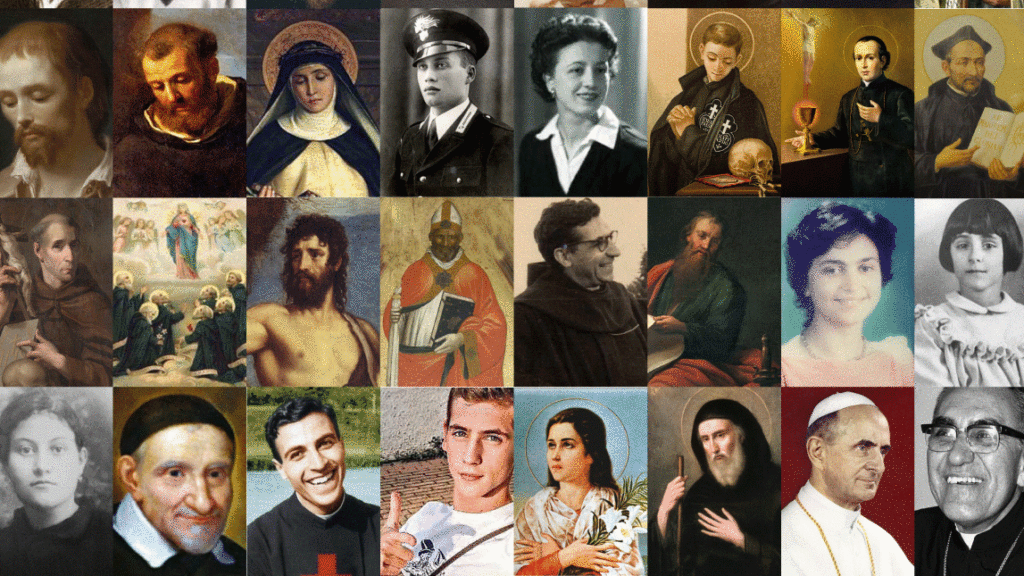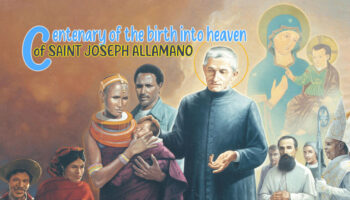
Every time we think or talk of the saints, the idea that comes in our minds is the one of heroes. We consider saints to be heroes and rightly so. It is however important to differentiate the worldly concept of heroism and the Christian concept of heroes, if we have to correctly attribute the right qualities to our brothers and sisters who are in heaven.
By Jonah M. Makau *
For starters, the concept of heroism was first used in ethical field by Aristotle. It was propagated into Christianity by St. Augustine, who applied it to the martyrs. The martyrs were named heroes because they chose die instead of sinning. That way, they defeated the Devil. In other words, the capacity of the martyrs to overcome the temptation of wanting to save their lives at any cost was compared to defeating the ever-determined evil forces to lead people astray. That is why the saints were considered winners. With the end of the persecutions, other people, who had not been martyrs, began being associated with martyrdom. The fact of living properly the Christian life and hence overcoming one’s weaknesses made ordinary Christians to be martyrs of some kind. They were called confessors. These were people who unlike the martyrs who had witnessed Christ through their death, witnessed Christ through their virtuous life.

Unfortunately, the fact that the concept of heroism was taken from pagan background, came with a lot of risks. For example, how was it possible to compare the martyrs and other saints with pagan heroes, most of whom were considered heroes due to their destruction power of their enemies, their revenge over their previous oppressors and their strength to eliminate their opposers? Second, the idea of heroes risked distancing the saints from the ordinary life of Christians. Sometimes there was a risk of raising the saints to unreachable heights, isolating them from Christian fraternity. This almost mythicized the saints. Worse still, that concept of heroism overshadowed the essence of the holiness of ordinary Christians, by presenting the idea that for one to be a saint he had to do extra-ordinary things instead of living ordinary Christian life which is open and generous to the grace of God. That view of things did not facilitate the fruition of holiness. Instead, it made it appear as an inimitable gift which is of less meaning for the life of the poor sinners.
The background of the New Testament concept of holiness and heroism however, is different from pagan heroism. The Christian hero is the one who in his effort to follow Jesus is able to deny himself, take up his cross every day and follow Christ (Lk. 9:23). The Christian belongs to Christ (Phil. 3:12). His life is a mystery of communion with Christ. Every Christian is crucified with Christ in baptism. The death of Christ on the cross was a sign of how much he loved us. Today, Christian heroes are those who are able to love Christ and his brothers and sisters in the same way he did. To be heroes in our time therefore, we have to do two things.
First, we have to value the “quotidianità” or the life of each day. It is easy to live fully and joyfully, short beautiful moments of our faith, as only “a fire of the moment”. It is however another thing to live our daily Christian commitment every day, every week, every month and for years. That is the reason Jesus spoke of taking our cross every day. It requires constancy, an enduring patience, and an unwavering determination. It is what faithfulness is all about. Secondly, to be true heroes in the Christian sense, we have to go beyond the common practice of every other Christian, in living the Christian virtues. The small step beyond the common practice points to the effect of the Holy Spirit in us, as it shows what we could not have attained by our own capacity. In other words, going beyond the common practice of every other Christian requires collaboration with the spirit of the Lord. Let us ask the lord to continue inspiring our lives to be Christian heroes of our time.
* Fr. Jonah M. Makau, IMC, is taking a course of postulation in Rome.



